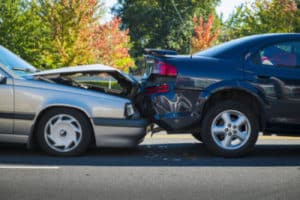Appearing On:
















Serious injuries deserve experienced attorneys
I n every DC auto accident case that involves a jury, the jury is issued a jury instruction. Jury instructions are fundamentally rules and guidelines issued by a judge in order to aid jurors throughout the trial so that when it comes down to final deliberations, jurors are able to make the most knowledgeable and impartial decision on the case.
n every DC auto accident case that involves a jury, the jury is issued a jury instruction. Jury instructions are fundamentally rules and guidelines issued by a judge in order to aid jurors throughout the trial so that when it comes down to final deliberations, jurors are able to make the most knowledgeable and impartial decision on the case.
Take a look at this jury instruction about expert opinion from a Washington D.C. Civil Court.
Expert Opinion (D.C. Std. Civ. Jury Instr. No. 2-11)
Some witnesses testified as experts. A person can be an expert based on his training, skill, experience, or education.
You should evaluate expert testimony like any other evidence. You may give expert testimony as much or little weight as you think it deserves, taking into account the witness’ training and experience, his or her credibility, the reasons given for the opinion, and all the other evidence in the case. [You should consider all of these factors in resolving any conflict in the testimony of different expert witnesses].
What does it mean?
Most skilled DC personal injury lawyers understand that although all jury instructions are intended to clarify court proceedings, they can be confusing. For the large majority of Americans who did not go to law school, the language used in the jury instruction can seem technical, ambiguous, and largely unfamiliar.
Let’s break this jury instruction down.
This particular instruction covers how you, as a juror, should evaluate an “expert” witness (we’ll go into more detail below about what that means). Essentially, the instruction is neither encouraging you not discouraging you to apply value to the expert’s testimony. According to the instruction, you should place however much value you deem fit when analyzing all of the evidence in the DC personal injury case.
Remember: most of the time, one party will bring an expert to the stand to try to testify against the opposing party. There is almost always going to be a slant one way or the other, and it’s important to keep this in mind when you are making final deliberations.
What is an expert witness?
So, what exactly is an expert witness? The jury instruction outlines that a person can be an expert “based on his[/her] training, skill, experience, or education.” But what does that mean? For the most part, an expert is brought forth to confirm a part of a story using their extensive knowledge about a certain area of the case. After all, it’s going to sound much more believable if a doctor — an expert in them medical field — says a victim of a DC car accident suffered from a sprained ankle based off of X-rays than if the victim says it themselves.
What are examples of experts?
Depending on the case, either party can bring up a wide variety of witnesses from forensic to financial to medical experts.
Think of a typically DC workers compensation lawsuit. Let’s say you are a juror on a case where a construction worker is suing their hiring company for compensation for the back injuries they sustained during their five years on the job. A medical professional, who is an expert in workplace injuries, could be called to the stand to testify that the workers back pain is a common side effect of overexertion at the job.
The medical professional helps aid the party of the injured worker to link the worker’s back pain to the physical labor from his/her workplace.
What’s the big take away?
If you leave this article remembering anything, here’s what you should know: Many DC auto accident cases have expert witnesses that testify as a result of their extensive knowledge, skill, or experience in a certain field. While they may add credibility, they may also have bias. Most importantly, when you evaluate expert witness testimony, evaluate it alongside all the other evidence. Place as much value on it as you see fit.
Please do not rely on any above statements as legal advice. You should always seek the advice of a licensed lawyer in order to assist you.
Personal Injury Attorneys In:
Washington DC | Maryland | Virginia
“Cohen & Cohen did a great job at recovering a good amount of money for me after my accident. Siri was super informative & responsive. Overall I had a great experience using this firm & they will be my first call if I am ever in an accident again.”
– Charles M.
 Personal Injury Accident
Personal Injury Accident
“I had a very positive experience with Cohen & Cohen and I highly recommend them to anyone who needs their services.”
– John G.
 Tractor Trailer vs Car
Tractor Trailer vs Car
“I would highly recommend Cohen & Cohen. They were awesome on my case. Cohen & Cohen had my best interest at heart at all times.”
– Morgan L.
 Personal Injury Accident
Personal Injury Accident
“My experience at Cohen & Cohen has been great from the beginning until the very end when my case was closed…I would definitely recommend them to family, friends or anyone that has a case with a personal injury accident.”
– Maria M.
Reviews
From Our Valued Clients
Cohen & Cohen has an impeccable client satisfaction rating with hundreds of 5-star reviews. We are among the best-rated firms in D.C., Virginia, and Maryland.

Best Personal Injury Lawyer in DC








Cohen & Cohen Has Been Featured On


















